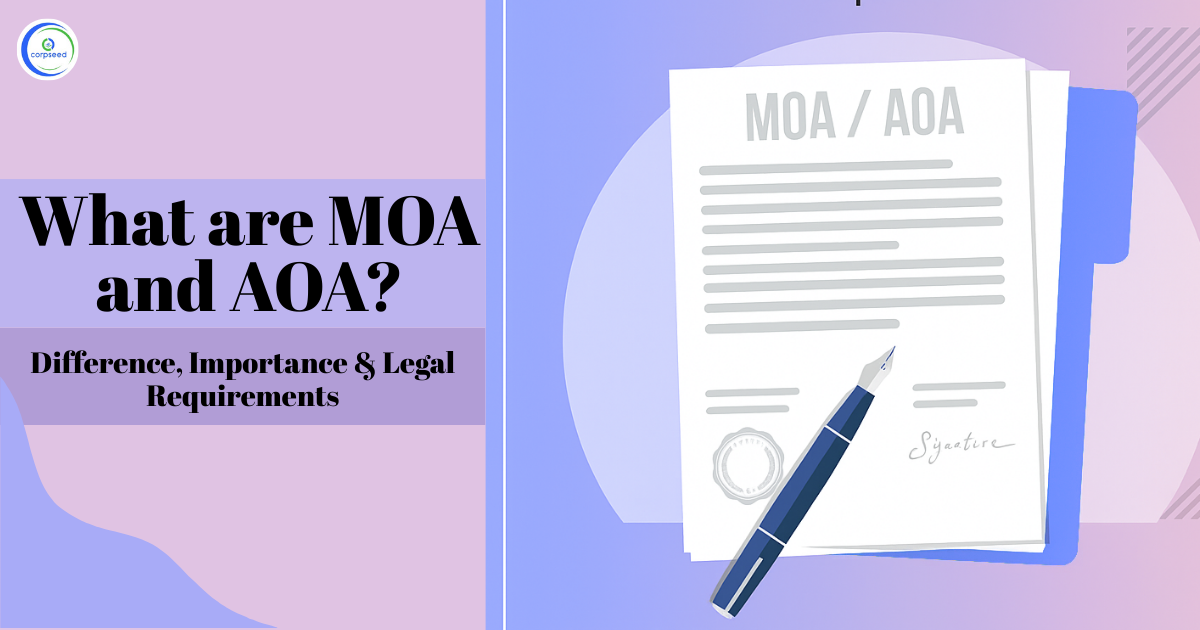Introduction: Section 8 Company Registration
When we look at the records, on a daily basis there are a number of companies that are being registered and are running successfully and making a profit out of them. Not every company has an objective to earn profit but there are also some companies that do not have any motive to earn profit but to work for social causes. These types of entities are known to be as Non-Profit organisations.
In India, a non-profit organisation can be registered in only three categories, namely –
- Trusts
- Societies
- Section 8 Companies
Table of Contents
--------------Blog Contact Form-------------
There is no such central law that governs the Trusts, they are governed under state law. Societies are governed under the Societies Act 1860; while Section 8 companies are governed under the Companies Act, 2013.
For registering any such Non-Profit Organisation, Section 8 Companies are best to go with. These are registered under the Companies Act 2013 with the sole objective of social welfare only without taking any profit out of them.
A Section 8 Company has the main objective of promotion of science, art, commerce, sports, charitable activities, etc.
Section 8 Companies
The Section 8 companies are registered under Section 8 of the Companies Act 2013, previously these were covered under Section 25 of the Companies Act 1956. Non-profit Organisations registered under Section 8 have a sole objective to promote and work in the areas of arts, commerce, science, healthcare, research, education, sports, environment protection, social welfare, religion, environment protection, etc.
The profit made by these companies can’t be utilized for personal welfare, it can be only used to promote the objectives mentioned in the company.
Features of Section 8 Company Registration
- Charitable objectives
- Better Credibility
- Government privileges
- No minimum share capital
- Perpetual existence
- Separate legal status
- Limited liability
- Central government license
- Attracts donations
- Can take income tax benefits under Income Tax Act
Eligibility Criteria of Section 8 Company Registration
- A minimum of two people are required for the registration.
- Minimum one of the directors should be an Indian resident.
- The of company must be as per the Companies Act 2013
- The objective should not include any profit-based activities
- Founders, members, and directors of the company cannot take the dividend.
- No profit should be distributed among the members and director
- The name of the Section 8 company must contain “foundation” or “association”
Documents required for section 8 Company -
- PAN Card from all Directors
- ID proof from the directors (Driving License/ Voter ID/Passport)
- Bank statement/ mobile bill of all directors
- Address proof for the company registered office (Rent agreement, Possession letter, etc.)
- Electricity Bill of the office building
- Trademark Registration Certificate (if any)
Procedure for section 8 Company Registration
- Obtain DSC
DSCs are the digital signatures that are separate for all the directors and the members. These are required for signing the incorporation documents as all the documents are required to be signed digitally. - Name Filing
Form Spice-Part A is the new form introduced, which is required to be filled instead of Form RUN. Spice-Part A is a form that is used for the approval of the name. - Drafting of Memorandum of Association
MOA defines the Constitution of the Company through the clauses namely - The name clause, Object clause, Registered Office clause, Liability clause, and Capital clause. - Drafting of Articles of Association
AOA defines the rules and regulations for the operations of the company - INC 12 -
This is the application for the license which is approved by the Central Government. This is submitted in SPICE form along with – MOA, AOA, INC 14 (draft memorandum and articles of association have been drawn up in conformity with the provisions of section 8 and rules), INC 15 (Declaration by each of the persons making the application), An estimate of the future annual income and expenditure of the company for next three years, specifying the sources of the income and the objects of the expenditure. - Filing SPICE-Part B
In form Spice-Part, B disclosure of the Directors and the Shareholders details along with details like Registered Office, and objects of the Company is filled. - AGILE-Pro Filing
this is used for the application of GST, ESIC as well as EPF along with company registration. Declaration in SPICE-9. Since these are not required in Section 8 Company, this form can be attached as blank. - Filing SPICE-Part B
In this form, the directors and shareholders provide a declaration of record of conviction - Issuance of Incorporation Certificate
The incorporation Certificate is issued by the authorities, after the scrutiny of the documents. Aloin with COI, INC12 (license), PAN, and TAN are also issued.
Relaxation in compliance norms
- Company Secretaries (CS) are not mandatory
- No minimum share capital required
- The shorter notice period for AGMs
- Unless required it’s not mandatory to record minutes of meetings
- Only two directors can register the company
- No meetings are required for decisions
Expert’s Advice for Section 8 Company Registration
NGOs registered which are registered as a Section 8 are ideal for performing social activities without any hindrance from anyone. One can register their NGOs as Section 8 and can enjoy the benefits of raising funds and limited liability. It is governed by MCA under Company Act, 2013. The procedure of registration is really easy and the registration can be done within 7-10 days. As the filing requires expertise to draft the documents, you can contact Corpseed for the same.
This portion of the site is for informational purposes only. The content is not legal advice. The statements and opinions are the expression of author, not corpseed, and have not been evaluated by corpseed for accuracy, completeness, or changes in the law.
BOOK A FREE CONSULTATION
Get help from an experienced legal adviser. Schedule your consultation at a time that works for you and it's absolutely FREE.









